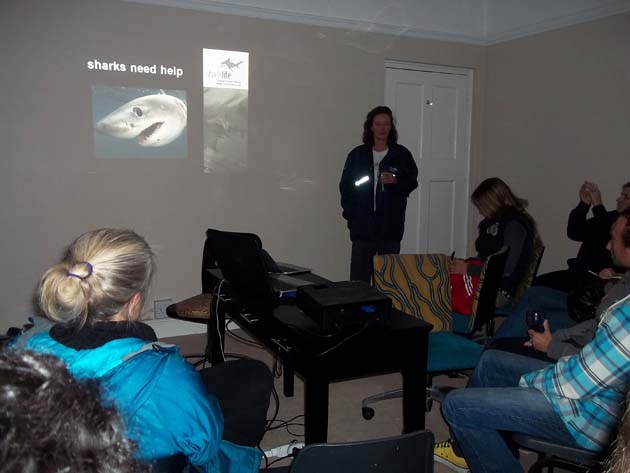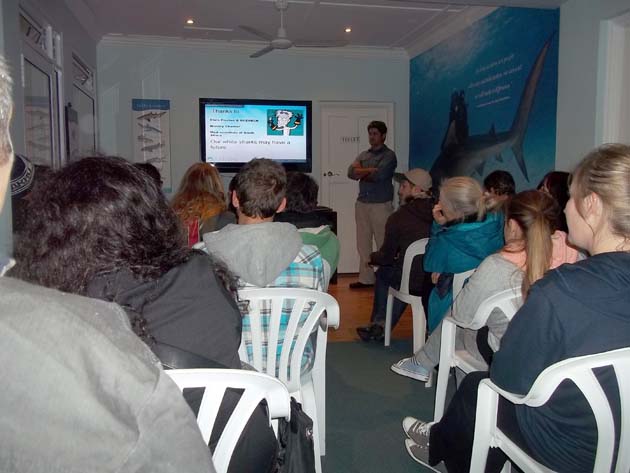Getting the public involved in shark conservation at the Save Our Seas Shark Centre
Weekly speaker series will run until the end of July, informing the public on shark and marine conservation
Thursday 12 July marked the third successful evening in the series of marine conservation talks held at the Save Our Seas Shark Centre. The theme of the evening was centered around public participation in shark conservation, with talks given by Fiona Ayerst of Sharklife and Ryan Johnson of Oceans Research.
Fiona Ayerst’s talk took us back to the beginning of why we should protect sharks and identified the key threats that sharks face and how we as the public, can contribute to make a difference. ‘By getting involved as a volunteer to organisations like Save Our Seas, supporting community beach clean ups and similar events, or just by giving donations to a cause you support, one can contribute to changing the outcome of situations like these’, says Fiona.
Ryan Johnson addressed public perceptions of white shark research and approaches to shark and fish management and conservation in South Africa. Glen Thompson, a member of the public who attended the talks, said ‘We appreciate Ryan’s reflective approach to shark science.’
Ralph Watson was this week’s winner of the lucky prize draw, receiving a Save Our Seas coffee table book and shirt.
Next week’s talks, to be held on 19 July from 18:30-20:30, will given by Sarah Titley of Shark Spotters and Michelle Wcisel of the Dyer Island Conservation Trust, as Hanli Prinsloo has unfortunately had to cancel.
Winter for us means more sweaters, scarves, and dealing with rain and wind, but winter for a Cape fur seal is a matter of life or death. Michelle Wcisel is a zoologist specializing in predator prey relationships with the Dyer Island Conservation Trust. Her talk will introduce us to her study on the anti-predator choices made by Cape fur seals at Geyser Rock, Gansbaai compared to the seals of Seal Island, False Bay. Her study highlights how diverse habitat structures effect the anti-predator tactics used by Cape fur seals in the white shark rich waters of Gansbaai.
Sarah Titley will talk us through the history and value of the Shark Spotters programme, and its uniqueness when compared to other shark attack mitigation methods seen around the world. She will also discuss the data that has been recorded over the last 8 years, the patterns it has shown, and how it can help people to make educated decisions regarding the risk of shark encounters when entering the water.
These talks are free to the public. The talks this week are fully booked, however there are a few seats remaining for those on 26 July. Contact Kim von Brandis to reserve a seat as booking is essential, and visit our website and Facebook page for more information.
The aim of the Shark Centre is to encourage the conservation and awareness of sharks and marine life in the False Bay area through public educational programmes and activities, and by supporting scientific research.


